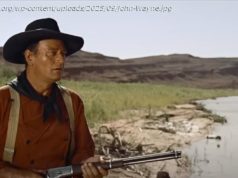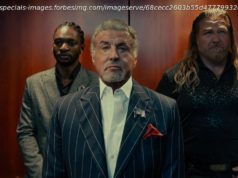Mr. Chow, who co-founded the Golden Harvest studio, helped propel Bruce Lee and Jackie Chan to global fame.
HONG KONG — Raymond Chow, a Hong Kong film producer who thrust Bruce Lee and Jackie Chan into global stardom while helping to transform the action movie genre, died on Friday in Hong Kong. He was 91.
His death was confirmed in a statement by Carrie Lam, Hong Kong’s chief executive. The statement did not list a cause of death.
A former journalist, Mr. Chow entered the film industry as a publicist in 1958, when he joined Shaw Brothers, a studio that had a pioneering role in kung fu movies and other popular, low-budget films. But he quickly grew frustrated with the quality of the studio’s output.
“It was hard to publicize a film that I do not believe in,” he said in a 2011 interview . “There are only so many lies I can tell. I can’t really exaggerate. Nobody will believe us.”
So the studio founder, Run Shaw, invited him to contribute his ideas on scripts, and he soon became a producer. Mr. Chow longed for more freedom over his work, and in 1970 he left to co-found his own studio, Golden Harvest.
Golden Harvest’s initial films did poorly against Shaw Brothers, which dominated the local market. But Mr. Chow then outbid his former employer to sign Bruce Lee, a young actor and martial arts expert who had appeared on American television in the sidekick role of Kato in the “The Green Hornet.”
Mr. Chow had seen Mr. Lee break boards in display of powerful kicks and punches on Hong Kong television, and learned that Shaw Brothers had been unable to sign him to a film contract.
Golden Harvest offered him $15,000 for two films, along with a share of the profits and greater say in the production. Mr. Lee agreed, and Mr. Chow quickly flew his new actor to Thailand, where, in rough, rural conditions, he filmed “The Big Boss” in 1971.
Mr. Lee’s intense aura and florid fight scenes helped the film become the most successful one shown in Hong Kong to that point, breaking the s box office total set by “The Sound of Music.” That success was followed by hits including “Fist of Fury” and “The Way of the Dragon.”
“In our early action films, we used actors who knew little about fighting,” Mr. Chow told The New York Times in 1973 . “We had to use various camera tricks. But the audience can tell the difference. It knows a real fighter when it sees one. That’s why Bruce Lee has been such a hit.”
After Mr. Lee’s death in 1973, Jackie Chan became a breakout star for Golden Harvest. He first imitated Mr. Lee, then modified his style to develop a more irreverent, comedy style of kung fu film.
Mr. Chow pursued films in Hollywood in the 1980s, and Golden Harvest produced several American box office hits, including “The Cannonball Run,” with an ensemble cast that included Burt Reynolds. Mr. Chow found small roles for Mr. Chan and the Hong Kong comedian Michael Hui in the movie, hoping to develop the market for Chinese actors in the United States.
While the works were often critically panned, Mr. Chow had an eye for box office success. In the 1990s, Golden Harvest produced the “Teenage Mutant Ninja Turtles” series, based on earlier comic books and cartoons. The first film took in more than $200 million.
Mr. Chow was born in Hong Kong in 1927. He attended St. Johns University in Shanghai before returning to Hong Kong in 1949, when Mao Zedong and the Communist Party took over China. He worked as a journalist for outlets including the Hong Kong Standard and Voice of America.
After his production company’s long run of success, it stumbled during the years after the 1997 Asian financial crisis, just as mainland China’s film industry began to grow. He sold his stake in the company in 2007 to the mainland businessman Wu Kebo, who merged it with his own entertainment group to become Orange Sky Golden Harvest Entertainment.
In a 2013 interview with The South China Morning Post, Mr. Chow described a liberated, collaborative style as the underpinning of his work.
“My philosophy is to entertain people, to make people happy,” he said. “Filmmaking also suits my way of thinking: I love freedom, and don’t like being placed under restrictions.”
The names of his survivors were not immediately available.






